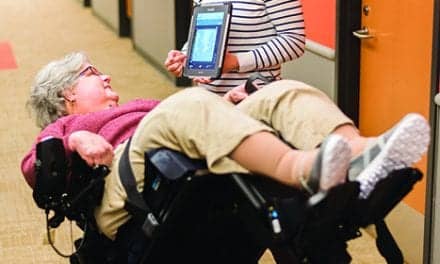The Amputee Coalition of America, Knoxville, Tenn, and the American Orthotic & Prosthetic Association (AOPA), Alexandria, Va, hail the introduction of the Prosthetics and Custom Orthotics Parity Act of 2010 in the United States Senate as a major step toward ensuring that Americans with disabilities have fair access to the mobility devices they need. Devices include artificial arms and legs for amputees and custom orthotic devices for people challenged by cerebral palsy, muscular dystrophy, multiple sclerosis, spina bifida, and other diseases.
This legislation recognizes the importance of mobility to overall health and bans employers and insurers from imposing stricter limits on insurance coverage for prosthetic arms and legs and custom orthotic devices than those set for other essential medical care. This bipartisan bill, S3223, was introduced on April 19 by Senators Olympia Snowe (R-Me) and Tom Harkin (D-Iowa).
The Amputee Coalition and AOPA said that S3223 will remove lifetime caps and exemptions that insurance companies often place on prosthetic and orthotic care, which reduce benefits to such a level that the average person can’t afford a prosthesis or complex bracing device. In some cases, these companies have even eliminated coverage completely for artificial limbs, they add.
The importance of federal parity legislation has grown dramatically with the passage of the recent health care reform law, which permits health insurers to sell across state lines under "health insurance compacts," AOPA Executive Director Thomas Fise said. “These multi-state arrangements allow the insurer to select the lowest common regulatory denominator. It is feared that states without parity laws would often be the insurer’s regulatory venue of first choice. This choice would in effect rescind or override any parity laws that may have been passed in other states served by the health insurance compact. That makes this federal parity law virtually indispensable both in filling in the gaps created as to Employee Retirement Income Security Act (ERISA) plans that are unaffected by state laws as well as reinforcing existing state laws most crucial to preserve patient care that is not subject to lifetime limits or other arbitrary benefit caps.”
Legislation for fair prosthetic and orthotic coverage is also receiving support in the House of Representatives, in state legislatures around the country, and from many prominent leaders and organizations.
On May 21, 2009, a similar bipartisan bill, HR 2575, was introduced in the House of Representatives.
Since 2006, the Amputee Coalition, working with volunteers across the country, has supported initiatives resulting in 19 states passing prosthetic parity laws.
Almost 30 national health care associations—including the Paralyzed Veterans of America, the Christopher and Dana Reeve Foundation, Easter Seals, and United Cerebral Palsy—have also signed on in support of parity legislation.
[Source: Amputee Coalition and AOPA]



